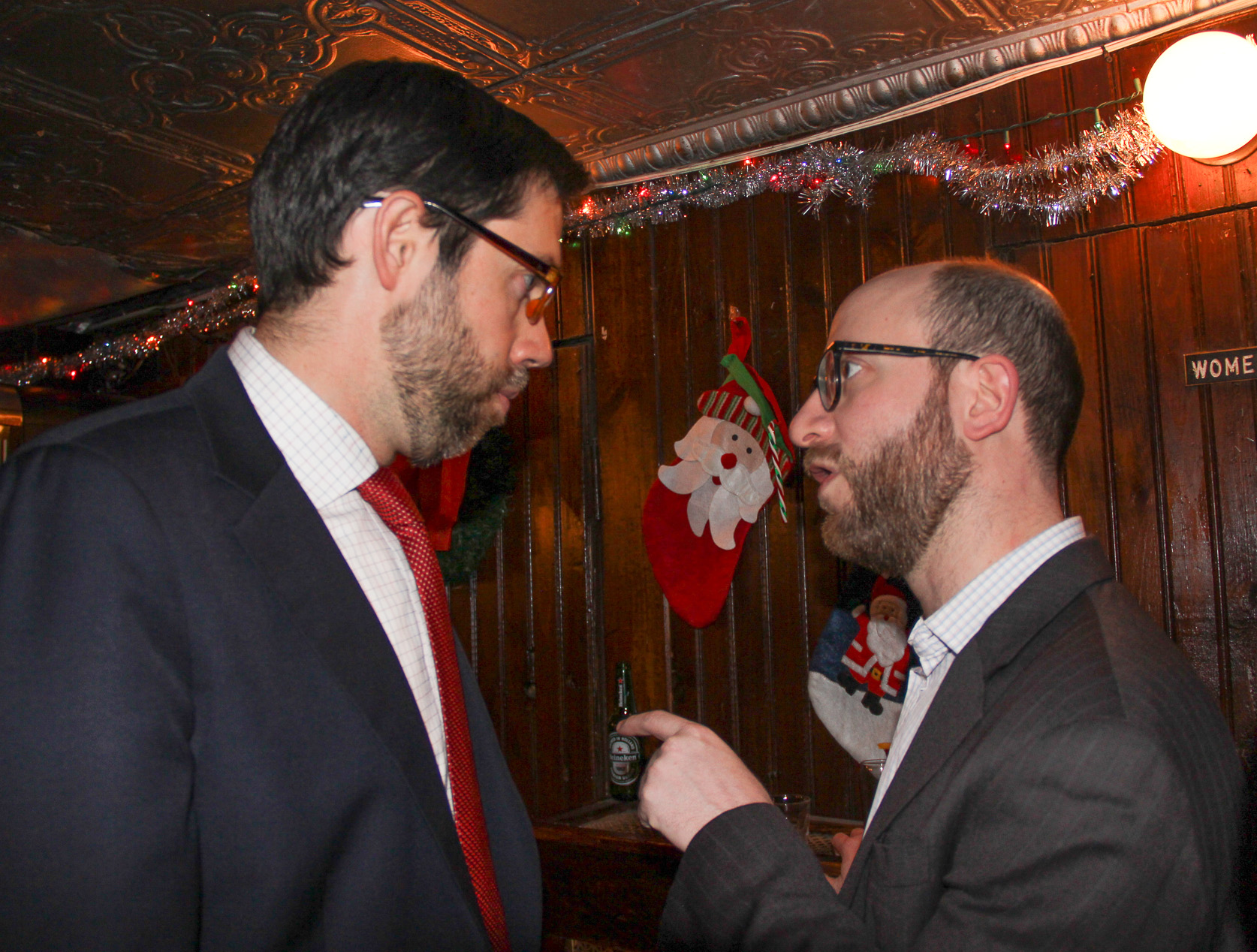
BY JOSH ROGERS | So who is going to be picking the successor to Shelly Silver, the former assemblymember who was convicted last month on corruption charges?
If you are following the story, you already know it won’t be voters. Members of the Democratic County Committee from Silver’s 65th Assembly District in Lower Manhattan will effectively crown the next legislator early next year when they select the nominee for the April 19 special election.
But at least the public can easily see who the committee members are, right?
Well, no.
The city’s Board of Elections quickly sent The Villager its most complete list when this reporter asked this week, and presumably would do the same for anyone else, too, but the list is not readily available online. Even more disturbing than that, however, is that the names of some members filling vacancies on the committee may stay hidden from the public before the anointment.
Cathleen McCadden, executive director of the Manhattan Democratic County Committee, said it is up to the local Democratic district leaders to fill vacancies, and many prefer not to release the names.
“It’s the only power that they have,” she told me.
Indeed one Downtown Democratic district leader, who was inclined to send me the most up-to-date list, told me there was resistance from fellow district leaders. But the County Committee’s leaders, if they were inclined, could also get the names to the public if they wanted. They don’t.
There are 39 listed vacancies for the district’s 196 seats on the County Committee. Most members are not well known, but there are others who have been active in the community or in local politics, such as Virginia Kee in Chinatown, John Fratta in the Seaport, Diem Boyd on the Lower East Side and Tom Goodkind in Battery Park City. Perhaps the most noteworthy person on the committee is Judy Rapfogel, who was Silver’s chief of staff for the two decades he was Assembly speaker.
There have been many calls over the years to let voters play the central role in filling legislative vacancies, but McCadden said there’s nothing wrong with the current system, particularly in this case, since the new incumbent will likely face a Democratic primary next September, only five months after taking office.
“They’ll only be in office for a hot second,” she said, explaining that, in Albany, “it takes a long time to amass any kind of power.”
She did acknowledge, however, that the winner will be able to reach his or her new constituents with taxpayer-funded mailings.
Susan Lerner, executive director with Common Cause New York, which has long backed more-democratic ways to fill vacancies, said “even a short [term] incumbent is able to arrange things within their district for an advantage.”
The current system “denies voters a real choice,” she added. Lower Manhattan is overwhelmingly Democratic, so the Republican nominee stands little chance to win.
One of the reasons there has been no reform, Lerner said, is that so many state legislators first get into office through a special election and are reluctant to change a system in which they benefitted.
Assemblymember Linda Rosenthal from the Upper West Side is the exception. She won the political insider game in 2006, but saw the problem with the system.
“When I did run for the vacancy, a lot of people were disgruntled by the process,” Rosenthal, a former County Committee member, said this week.
Soon after taking office, she sponsored legislation that would require a primary and special election to fill a vacancy but it went nowhere. This session she and state Senator Daniel Squadron of Downtown Manhattan and Brooklyn are sponsoring similar bills that would set up nonpartisan special elections to fill Assembly and state Senate vacancies.
Candidates would collect signatures to get on the ballot.
“It’s a big concern that the process to fill vacancies is so complicated and obscure, especially after the year Albany’s had,” Squadron said in a statement, making a clear reference to the federal convictions of two of Albany’s “Three Men in a Room” — Silver and former state Senate Majority Leader Dean Skelos.
The new bills would certainly be less costly than holding a primary and special election, and one nonpartisan special election might attract a higher turnout rate than holding two elections. But Rosenthal did not hold out much hope for passage in 2016.
It may just be a matter of time as more beneficiaries see the problem.
Two of the four candidates to replace Silver, Paul Newell and Jenifer Rajkumar, have an advantage in the race since they are district leaders and have helped form the committee to decide their fate. They will also likely fill some of the remaining vacancies, but both said in interviews this week that they supported a more democratic way to fill vacancies. (As The Villager has reported in recent weeks, Yuh-Line Niou and Don B. Lee, are the other two who so far have expressed strong interest in running.)
Both Rajkumar and Newell said the winner would likely have an advantage when she or he runs for re-election in September, but neither thought that was definite.
“On the other hand, that’s four days [a week] in Albany and less time speaking with Lower Manhattanites,” Newell said.


































